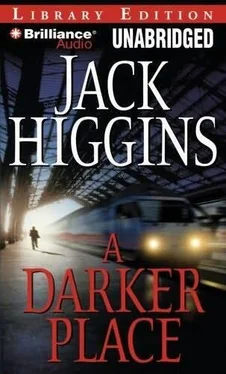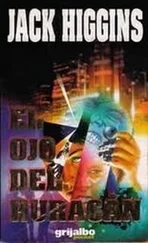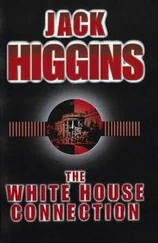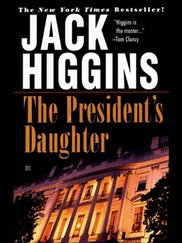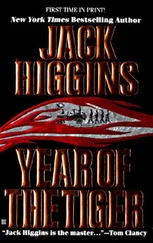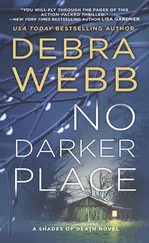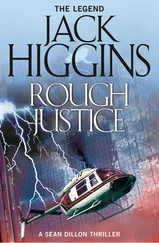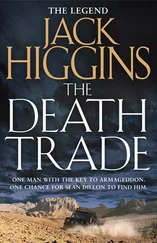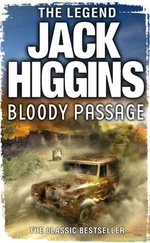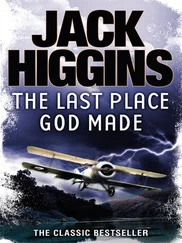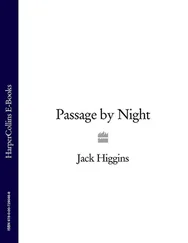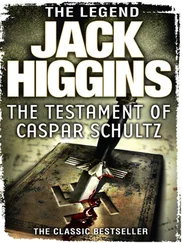They backed out. Ivanov said, “What happens for the rest of the day?”
“Well, I’ve no intention of sitting here on my backside, and according to the rules, you’ve got to accompany me, which will probably bore you to death. I like art, great art, so the Louvre is a must. I might just allow you a cruise on the Seine or a trip up the Eiffel Tower, but that’s it.”
“FOUR FIRST-CLASS TICKETS on the midnight train for Brest from the Gare du Nord. They are private compartments linked by a door. Each compartment takes two in the sense that you can pull two bunk beds down, but with the connecting door, it will suffice for a party of four. Here are the tickets.”
Blériot put them on the table and Monica examined them. “Excellent. We’ll travel in style. There is a restaurant car, I presume?”
“Yes. I know the train well. It has a kind of faded splendor, and the rolling stock is charming, but old. For example, there is a toilet at each end of the corridor, nothing private.”
“Hardly the end of the world,” Monica said. She turned to Dillon. “So, what do we do now?”
“Go for a walk, see the sights. Does that suit you, Billy?”
“Absolutely.”
“Remember you may use my barge as much as you want. There’s a lot of time to fill before your train leaves, and you’ll need a couple of the restaurant umbrellas. It’s not exactly the best time of the year to go walking by the Seine. I’ve things to do. I’ll see you later.” Blériot got up and went.
“There’s always the Louvre, the Eiffel Tower, Notre Dame.”
“Been there, done that,” Monica said. “What about you, Sean?”
“My dear girl, I used to live in this great city years ago, in the days of my wicked past. I even had a barge like Blériot’s.” He turned to Billy. “What about you?”
“I’ve never been to Paris, the Louvre isn’t my cup of tea, and I’m not into cathedrals. The Eiffel Tower, though, is something I always wondered about when I was a kid.”
“Right,” Dillon said. “We’ll get a cab and go. Afterwards, I’ll take you somewhere special.”
THEY DIDN’T KNOW that they had missed Kurbsky and Ivanov by only forty minutes at the top of the Eiffel Tower. In any case, the visit was something of a non-event because of the rain mixed with mist that draped itself across the city.
“I enjoyed Blackpool Tower more,” Billy said as they descended in the elevator.
“Spoken like a true Englishman,” Dillon told him, approached a taxi rank, and in rapid and fluent French told the driver to take them to Quai de Montebello opposite the Île de la Cité.
“Now what?” Billy demanded.
“Wait and see.”
A short while later, they parked at the side of a cobbled quay. “What’s all this?” Monica asked, getting out and putting up an umbrella.
“Bateaux mouches,” Dillon told her. “Floating restaurants. Sail up the river and have a meal and a bottle of wine, see the sights. It’s a regular thing. They follow a timetable.”
“In this bloody weather?” Billy said.
“If you notice, there are ample deck awnings, and you can sit inside if you prefer.”
“Don’t be a grouch, Billy, it looks like fun,” Monica told him.
Two deckhands were about to pull up the gangway, but paused to let them on board. A waiter approached, smiling.
“Will you be dining?”
“If it’s not too late for lunch,” Dillon answered in French.
“Of course, Monsieur, we never close. Not too many customers today. It’s the time of the year and the weather. Choose where you would like to sit and I will start with a drink for you.”
They went up to the upper deck, but the sides were open and the rain was blowing in, so they went back down and found a nice table by the stern window so they could see all the sights as they passed. Dillon and Monica had champagne, grilled Dover sole, and Lyonnaise potatoes, Billy a large bowl of bouillabaisse.
“I’ve got to give it to you, Dillon,” Billy said. “This stew is the business. I’m really enjoying the whole thing. Notre Dame looks great up there, the barges. It’s nearly as good as the Thames.”
Monica patted his hand. “There’s no answer to that. My fish was marvelous. All I’d like now would be coffee.”
The waiter, hovering, started to clear the plates. “At once, Madame.”
Dillon lit a cigarette, passed it to her, and lit another. “They’re French,” he said. “Nobody’s going to throw us off the boat.”
“How do you think things are going?” Billy said. “With Kurbsky?”
“Kurbsky seemed confident in his ability to handle the guard in his room tonight,” said Dillon. “Considering his military experience, he should be.”
“I suppose I’m just nervous because we’ve got nothing to do except wait for him at the gate for that midnight train at the Gare du Nord,” Billy said.
The waiter brought coffee. Billy asked for English breakfast tea and Dillon a Bushmills whiskey. Monica said, “I’m still fascinated by the whole venture, the future. I can’t get my head round what’s supposed to happen to Kurbsky.”
“Maybe he can’t either,” Billy said. “We’ll just have to wait and see.”
KURBSKY HAD BEEN slightly surprised to discover that the dress for the ceremony was not black tie. The new President had decided to open things up, and business suits were the order of the day. It was five-thirty when Kurbsky finished dressing and examined himself in the mirror in the bedroom wardrobe. Very much as he had done in New York, he wore black and had to confess it looked good. He went and kicked on the door of the connecting room, then went and found his jacket.
Ivanov came in. “You wanted me?”
“How are they?”
“Obviously better than they were. A long, hard day.”
“Bring them in.”
Ivanov departed. Kurbsky pulled his jacket on, fixed his cuffs, checking himself in the sitting room mirror. Burlaka and Kokonin were obviously revived by the day’s regime, had tried hard with their appearance, and he knew from what Ivanov had told him that they had put themselves in the hands of the hotel’s barber.
“Have you had a good day?”
They looked hunted and didn’t seem to know what to say. It was Ivanov who answered for them. “They behaved stupidly, but they’ve learned their lesson. It won’t happen again.”
Kokonin said, “Never, I swear it.”
“In the circumstances, I’ve decided not to take any further action in this matter,” Kurbsky said, and to Ivanov, “You will make no report of the affair when we return to Moscow.”
Their relief was immediate. “Thank you, Comrade,” they chorused.
Kurbsky wondered how they’d feel when they discovered he’d done a runner. It’d be a blot on their records sufficient to ruin any prospects of advancement in their chosen careers. What would they think of Alexander Kurbsky then?
He said, “Come down to the bar. I’ll buy you a drink.” They were astonished. “Come on, we haven’t got time to waste.” He opened the door and went out.
THEY STOOD AT the magnificent bar, and he ordered four vodkas and said, “You can’t all come with me to the ceremony. Only one aide is allowed to accompany me inside, so two of you have to wait in the limousines. In the circumstances, you will understand that I’m choosing Ivanov.”
“Of course, Comrade,” Burlaka said gamely, and glanced at Kokonin.
“And the fact that Ivanov spent the whole night obeying my orders and guarding me was, I believe, detrimental to his love life. It won’t be the same tonight. You two must sort it out when we get back.”
They nodded almost eagerly, and the four vodkas appeared before them. Kurbsky raised his in a toast and surprised them by not mentioning himself.
Читать дальше
Конец ознакомительного отрывка
Купить книгу
